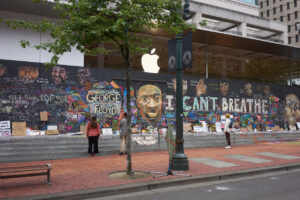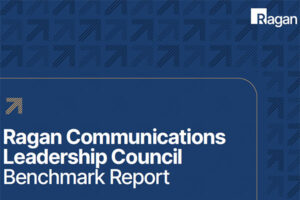DE&I in 2024: Transforming fatigue into ‘full steam ahead’
There’s reason for optimism.

2023 was a year of transition for the corporate practice of diversity, equity and inclusion.
Three years removed from the murder of George Floyd and ensuing protests that catapulted this set of priorities and protocols into the mainstream, urgency has begun to fade for some organizations. Layoffs of both DE&I professionals and diverse hires who suffered from a “last in, first out” mentality reversed some of the progress of recent years. Additionally, the Supreme Court case that ended affirmative action at universities has had a ripple effect, with a group of Republican attorneys general warning companies that take race into account during the hiring process may be subject to legal action.
But all is not gloom and doom for DE&I. Dorian Langlais, co-founder, managing partner and head of DEI Practice at Rally Point Public Relations, works with Fortune 100 companies to improve their outreach and communications with Black, Asian and Hispanic communities. And he found plenty of reasons to be optimistic about 2024, despite the challenges.
“Some (companies) will probably shrink back. It just is what it is, but there are definitely a number that are starting to say, we’re not gonna do that,” he told PR Daily. “We’re gonna push full steam ahead. That’s encouraging.”
Here are some of the biggest trends Langlais foresees for 2024 in the DE&I space.
Collaboration is key
There is a growing trend of creating content that brings different worlds together — pieces that speak to inclusion and bringing diverse audiences together. This doesn’t mean being preachy, however — it’s just a different way of looking at inclusion.
Langlais points to a collab between Nike and Louis Vuitton, bringing sneakers and high fashion together. There was also a staged beef between rapper Travis Scott and tennis great John McEnroe over what to name a sneaker.
“Collaborations from different worlds bring people together,” Langlais said. “And I think that’s definitely what’s needed. It’s not people being in their silos. The PR industry has a really great opportunity to play a big part in that. When we put them out together, there’s a story to tell.”
Agencies must diversify
As a co-founder of an agency, Langlais has made hiring diverse talent an intentional part of his strategy. Not just because it’s the right thing to do, but because it’s also good business. He predicts more agencies that want to make intentional progress in the DE&I space will need to step up hiring to be truly representative of the communities clients want to reach.
Data shows that the PR industry as a whole continues to lag in diversity compared to the U.S. as a whole, and that agencies are even farther behind.
“PR agencies, particularly, are going to have a lot of work to do in this space next year. And if they’re not really well equipped in position now, they’re going to have a really tough time next year, because things are going to move very fast and furious very quickly,” Langlais said.
DE&I work must be done with intention and must be built over time, Langlais said. And that starts with hiring diverse teams who truly understand and empathize with the needs of their community.
The election
Black and brown people, LGBTQ+ people and others who fall under the vast DE&I umbrella find their existence politicized in the U.S. And that is especially true as we move into an election year where rhetoric around multiculturalism, race relations and gender identity is already white-hot.
Langlais notes that while there are people on both ends of the political spectrum who deal in extremes and can’t really be persuaded, there are many in the middle who can be. They’ve weathered the societal challenges of the last few years and don’t want to go back to how we were in early 2020.
“The election reminds folks who maybe took their eye off the ball — corporations and companies and individuals and companies like ours — that, hey, listen, the fight’s not over. The fight is not over. And we need to continue to press on and do what’s right and do what needs to be done to support people,” Langlais said.
As the political conversation heats up, Langlais expects corporations to once again retrench their pro-DE&I stances. After all, diversity is growing in the United States. It’s just good business.
Regarding the Supreme Court decision, Langlais said that big corporations will find ways around the prohibition with linguistic tweaks and deep pockets, though smaller organizations may be frightened off.
Still, Langlais expects 2024 to reinvigorate this movement.
“It really takes the muscles and fortitude for companies, for agencies like ours, to really keep pushing, especially when there are some out there who are like, ‘Yeah, we don’t really know if we want to keep going in this direction, or we decided to go elsewhere.’ For us to keep that pedal to the metal, to keep moving.”
For inspiration on how to keep moving forward, join us for our Diversity, Equity and Inclusion for Communications Certification course, starting Jan. 17.
Allison Carter is editor-in-chief of PR Daily. Follow her on Twitter or LinkedIn.







